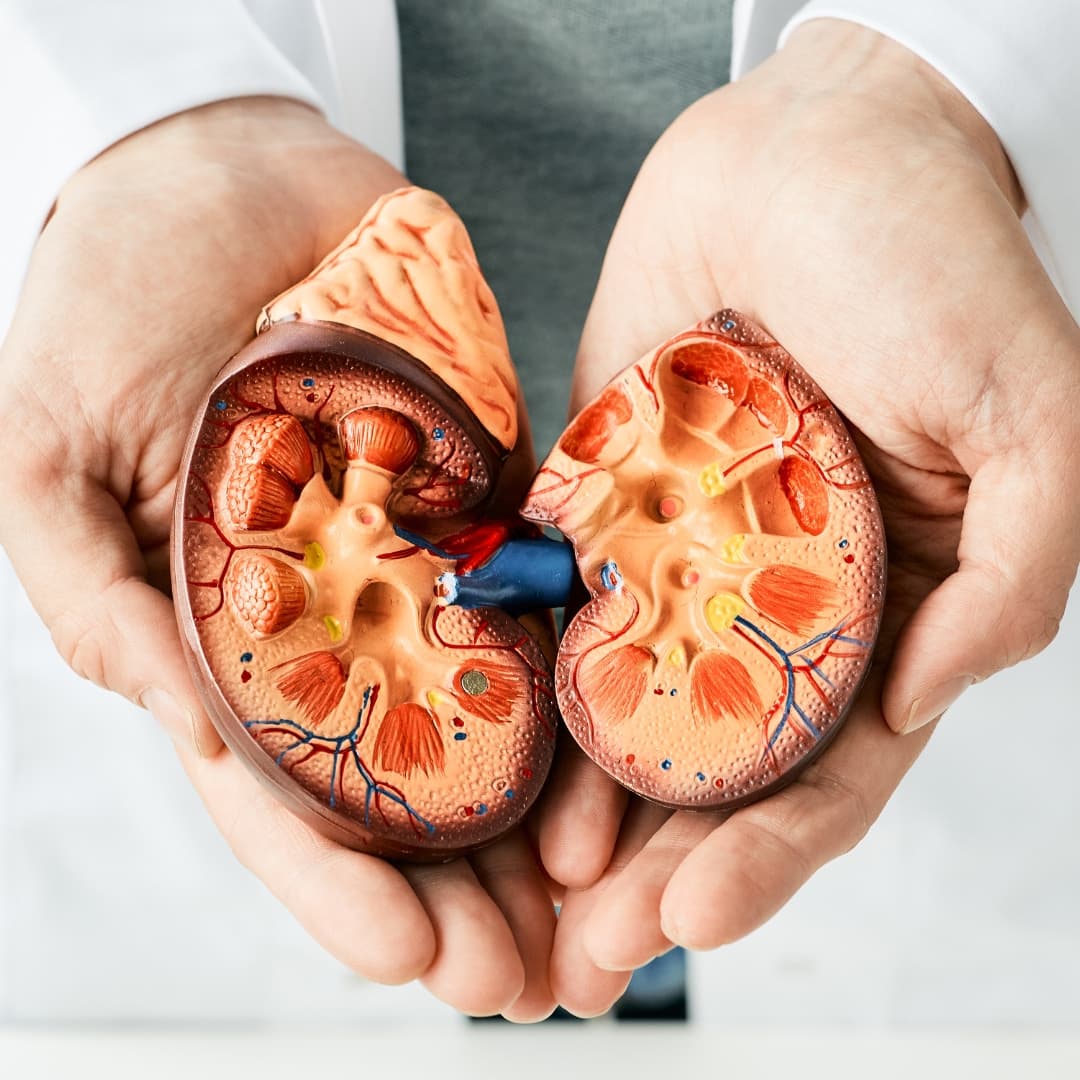Inherited & Rare Kidney Disorders
Inherited and rare kidney disorders are conditions passed down genetically or occurring infrequently in the population. These include Polycystic Kidney Disease (PKD), Alport Syndrome, Bartter Syndrome, and Gitelman Syndrome. They affect kidney function differently—some cause cyst formation, others lead to salt imbalance or progressive kidney failure. Early diagnosis and continuous care are essential to manage symptoms and slow progression.

When to Suspect a Rare Disorder
- Blood in urine (hematuria) or foamy urine.
- Swelling in the face, hands, or feet.
- High blood pressure at a young age.
- Kidney cysts detected in scans.
- Hearing or vision problems (in Alport Syndrome).
- Muscle weakness, cramps, or frequent urination.
Why These Conditions Occur
- Genetic mutations passed from parents to children.
- Family history of kidney disease or related syndromes.
- Defects in kidney structure or electrolyte transport.
- Rarely, spontaneous genetic changes without family history.
Living Smart with Genetic Kidney Conditions
- Do's
- Go for regular kidney check-ups if there's a family history.
- Follow prescribed treatments, including BP and electrolyte management.
- Maintain a balanced, kidney-safe diet.
- Stay hydrated and avoid dehydration.
- Seek genetic counseling if planning a family. Don'ts
- Don't ignore early warning signs like blood in urine or persistent swelling.
- Avoid high-salt, high-protein processed foods.
- Don't miss regular screenings or genetic evaluations.
- Avoid self-medicating with painkillers or herbal remedies without medical advice.
- Don't delay specialist consultation, as early care improves outcomes.
